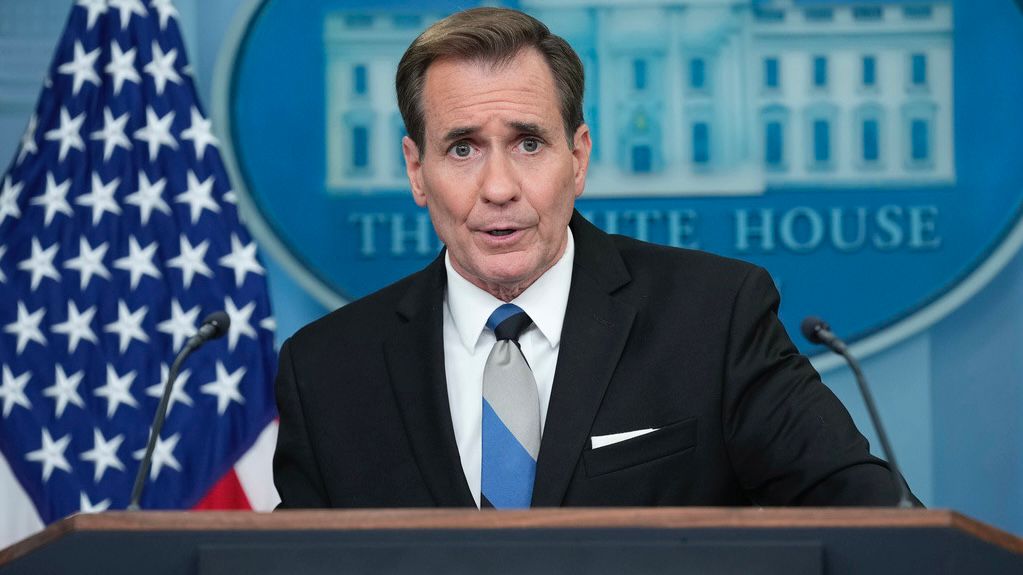The White House on Thursday said President Joe Biden is not going to “give up” on the goal of a two-state solution to the Israel-Palestine conflict hours after Israel’s parliament, the Knesset, voted by a large margin to oppose such a move.
“I think the best way I can respond to that is to just reiterate our firm belief in the power and the promise of a two-state solution,” White House National Security Advisor John Kirby told reporters on a call on Thursday. “And that is not something that President Biden is going to give up on and we're gonna keep doing everything we can to try to achieve that outcome.”
The Knesset on Thursday passed a resolution “firmly” opposing the establishment of a Palestinian state in a 68 to 9 vote, arguing such a move would “reward terrorism” -- and it would only be a “matter of a short time” until Hamas takes over.
“The establishment of a Palestinian state in the heart of the Land of Israel would pose an existential danger to the State of Israel and its citizens, perpetuate the Israeli-Palestinian conflict and destabilize the region,” the resolution read.
The U.S. has long supported a two-state solution in the region and Biden has often reiterated the stance amid the Israel-Hamas war in Gaza, even as Israeli Prime Minister Benjamin Netanyahu has rejected it.
Kirby on Thursday rejected the idea that the U.S. needs to move to a “plan B” when it comes to the future in the area after the war.
“It’s still about plan A, which is moving toward the possibility of a two-state solution,” Kirby told reporters. “Nobody, nobody is blind here to how difficult that is going to be.”
He added that the priority at the moment is getting a six-week ceasefire and hostage release deal in place, the first step in the multi-phase proposal laid out by Biden in May that ultimately seeks to end the war. He noted if Israel and Hamas can get to the first phase of the plan, then negotiations on the second step can begin.
“If you can get that, then you can begin to really start to lay the groundwork for post-conflict governance in Gaza that is free of Hamas, but also free of challenges to the security of the Israeli people,” he said. “And then you can really start laying some tracks towards a potential two-state solution over the long haul.”
Kirby said the U.S. is still “working hard” to help facilitate an agreement after Biden said in a press conference last week that both Israel and Hamas had agreed to back the framework while cautioning that there is still work to do to bring it to fruition.
Kirby also said a potential normalization of relations that previously seemed fairly likely between Israel and Saudi Arabia – something Biden has frequently cited as a reason he believes Hamas attacked Israel on Oct. 7 – could still be on the table and could help efforts for a two-state solution.
“We have indications that both sides are still interested in pursuing that outcome,” he said of Israel and Saudi Arabia. “And so, if you do that, that's another big milestone potentially towards a more integrated Israel in the region and a possibility of a two state solution.”
Netanyahu is set to make the trip to the U.S. next week to give a highly anticipated – and somewhat controversial among Democrats critical of Israel’s handling of the war – address to Congress. Kirby noted that the White House has “every expectation” that Biden and Netanyahu will see each other while the Israeli leader is in town. However, the president’s COVID-19 diagnosis on Wednesday – which has sent him to his home in Delaware to isolate – could impact such a potential meeting.
Kirby said it was his understanding that Vice President Kamala Harris would see the prime minister during his trip to the nation’s capital as well.



